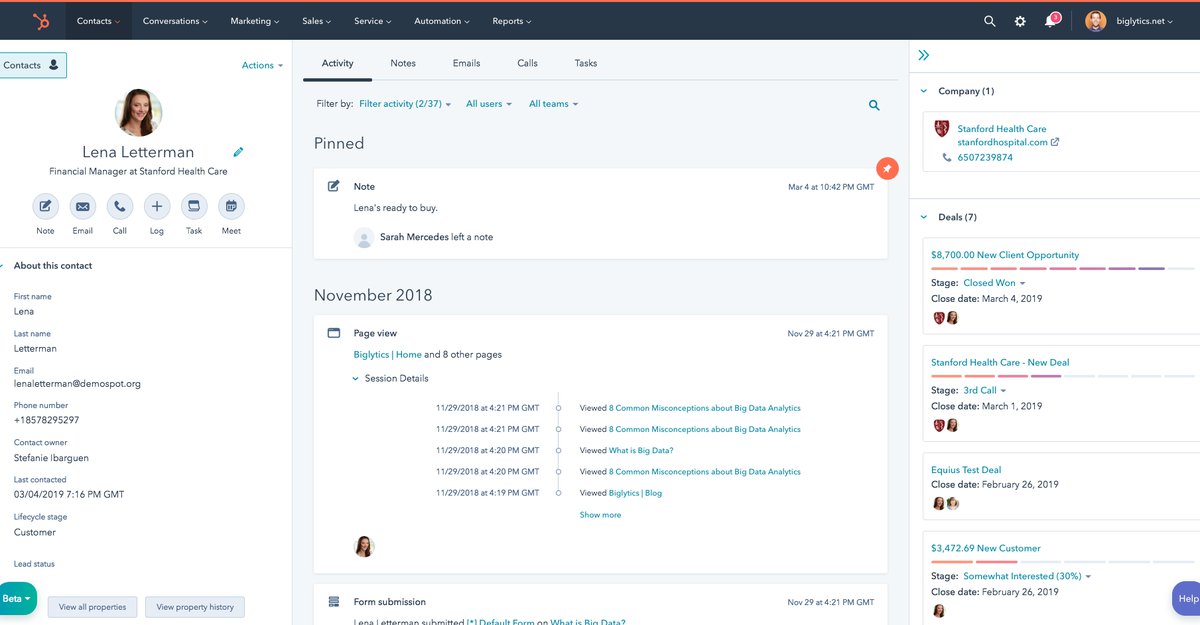
Though creating high-quality content requires time and resources, there is a way to extend its usefulness. Repurposing content refers to updating, refreshing, or adapting it for a new purpose. This strategy can maximize the lifetime of your content, extending its use and maximizing your ROI. Here are three ways to repurpose your content:
Inbound marketing
Your inbound marketing campaign can be successful if you have a strong content strategy. Your content should give a glimpse into your brand while also providing value for your target audience. This type of marketing is part of the inbound methodology and entails putting your content in strategic places and promoting it intuitively. Find out how you can maximize your content marketing. There are many ways content can be used to build loyal followers for your business.

A vision of success is a key aspect of any inbound marketing strategy. You can then break down your vision into a series or campaign initiatives. This will allow you to refine your content strategy, and help you achieve your goal. Inbound content strategies need to be designed with the long-term goal in mind. They can be divided into content-driven or content-focused marketing. In both cases, content marketing is an effective means of generating leads, increasing conversion rates, and increasing sales.
Subject-matter content strategy
If you want to be an industry expert in subject-matter content, it is important to share the knowledge of your employees. Your brand is seen as an expert resource by customers who seek out compelling information and thought-leadership. But how can you create captivating content that shares knowledge in a genuine way? Here are some suggestions for engaging your target audience with content. Let's explore each one.
Find SMEs who are experts on their field. Experts in subject matter are great sources of information, but they are busy and may not be able to produce high-quality content. Many SaaS companies have wondered how they can encourage SMEs into content marketing. In this case, Amit Levi, the founder of Anodot, proposes a solution: "Bring your SEO team into the picture." Your SEO team will be able to help you find the right keyword opportunity and pass it on to subject matter experts.
Search engine optimization
SEO is an essential part of website marketing. There are many ways to increase your search engine visibility. However, optimizing your content will ensure you are seen by as many people possible. It can be done in many different ways. Here are five content strategies to help you website rank higher in search engines. Using one or more of these strategies will help your website receive higher SERPs on Google.

To develop a content strategy to optimize search engine optimization, you must first understand your target audience. Then identify the keywords that will be used by your potential customers to find your company. To help you guide your efforts, create buyer personas. Be sure to include video and other trending content in your strategy. Keywords that are relevant to your audience should be included if at all possible. This will make it easier to create high-converting content and get indexed quicker. While it is not necessary, this step will help you rank your website higher.
FAQ
What Content Marketing Strategy is right for me?
If you already know what you want to say, then a Content Marketing Strategy will work perfectly for you.
But if you're unsure where to start, here are some questions to ask:
Do I need my business to communicate something particular? Or do I want to create content that resonates with general audiences?
Do I want my efforts to convert visitors into buyers or generate leads?
Is it one product I am trying to promote or multiple products
Are there people I'd like to meet outside of my industry, or am I open to reaching them?
If you answered "yes" to any of these questions, then a Content Marketing strategy is exactly what you need.
How do I measure success in content marketing?
There are many methods to determine the effectiveness and efficiency of your content marketing strategy.
One good measurement tool is Google Analytics. This tool will allow you to see from where your targeted traffic comes and the pages they visit most often.
It also shows you how long each visitor stays at your site before they leave.
This information can be used by you to improve your content, get people's attention, keep them engaged longer and make it more appealing.
The following questions will help you to measure the success and failure of your content marketing efforts:
Is my email newsletter providing any value to my subscribers? What proportion of my mailing list has become paying members? How many people have clicked through on my landing site? Are click-throughs more successful than other types of conversions?
These are all important metrics to track and monitor over time.
Another way to measure your content marketing success? Look at how often people share links to your content on social networks.
Start now if you don't already. It could be the difference in being seen or not in your industry.
Is content marketing easy to measure?
Yes! Yes! It will help you decide if your efforts were a success and if you have to make any adjustments.
You can track visitors coming from many sources (email, social media and paid advertising) and track conversions like sales leads, purchases, and organic searches.
These metrics can tell you which pieces of content performed well and where your most significant opportunities lie.
Where should I start when it comes to Content Marketing?
Start by identifying your audience. Who are they exactly? What are their needs How can you help them? When you understand who you are writing for, it is easier to decide where to direct your efforts.
Do you need a large budget to do content marketing?
It all depends on the size and stage of your business. Many start-ups don't have the resources to invest in marketing. Once they start to grow, however, they soon realize how a solid content strategy can increase sales and improve customer engagement.
Partnering with a content agency or freelance writer will give you access to many tools and expertise. These professionals can help you identify the problems and opportunities in your company to guide your content marketing plan.
A well-designed content marketing strategy can help you make enough money to cover production expenses and allow you to invest in other aspects of your business.
How long does it take to get started in content marketing?
It depends on how large your business is. Smaller businesses often don't have the resources to invest immediately in content marketing. However, it can pay off big-time if you're willing to put in some time.
Statistics
- Progress indicators (0–100%) allow each team member to see how attainable each goal is and understand what remains to be accomplished. (semrush.com)
- This marketing strategy landed Ford a 15.4% conversion rate. (neilpatel.com)
- Content marketing produces 3X more leads per dollar spent. Content marketing costs 62% less than traditional marketing. (criteo.com)
- According to our research, brand awareness, attracting traffic, and generating leads remain the key content marketing goals in 2022. (semrush.com)
- To further show the importance of this, 89% of people have stopped doing business with a company because of a poor experience. (neilpatel.com)
- Measure your goals with a progress indicator of 0-100%. Make your goals collaborative and transparent (semrush.com)
- We found that 40% of businesses don't have a documented strategy yet. (semrush.com)
- An example of an overarching goal could be: "In 2022, we want to achieve a 20% increase in revenue created by organic content and generate 15,000 MQLs with a budget of $30,000." (semrush.com)
External Links
How To
What is a content marketing plan?
A content marketing plan (CMP), is a document that helps you to define your goals, objectives and strategies for building and executing an online presence. It is a plan for how to reach those goals via content creation and distribution.
The CMP is usually broken down into three main areas:
-
Your overall strategy - What are you looking to achieve?
-
Your content strategy. Where are the best people to write, curate, distribute and promote your content?
-
Your strategy's execution tactics - What channels will you use for sharing your content? What type of content will your produce?
These four components are essential for a CMP to be effective.
-
Goal Setting - Define your target audience, and establish measurable KPIs to measure success.
-
Audience research - Get to know your ideal clients so you can pinpoint the right places to search for them.
-
Strategy – Develop a clear vision and strategy for where you want to be. Divide it into smaller chunks.
-
Execution: Set realistic expectations regarding when you will see results.